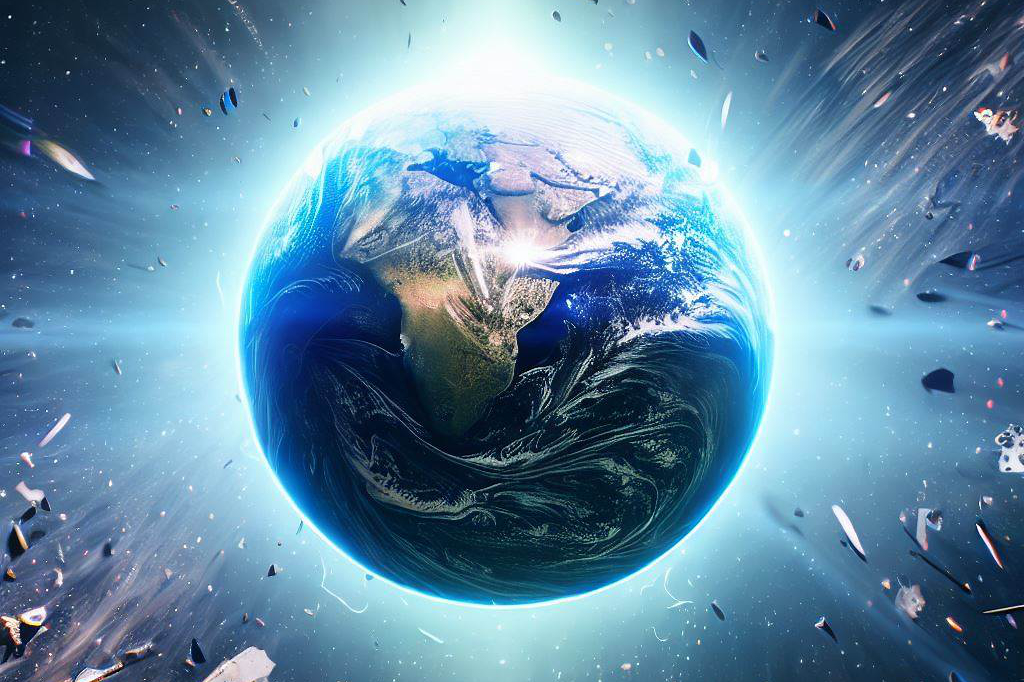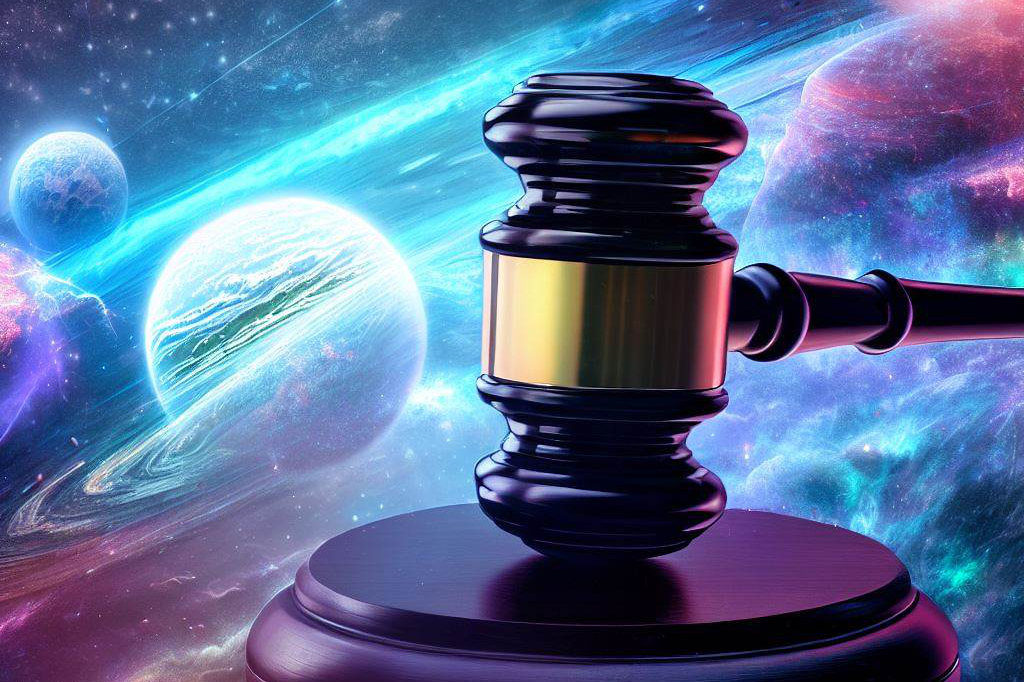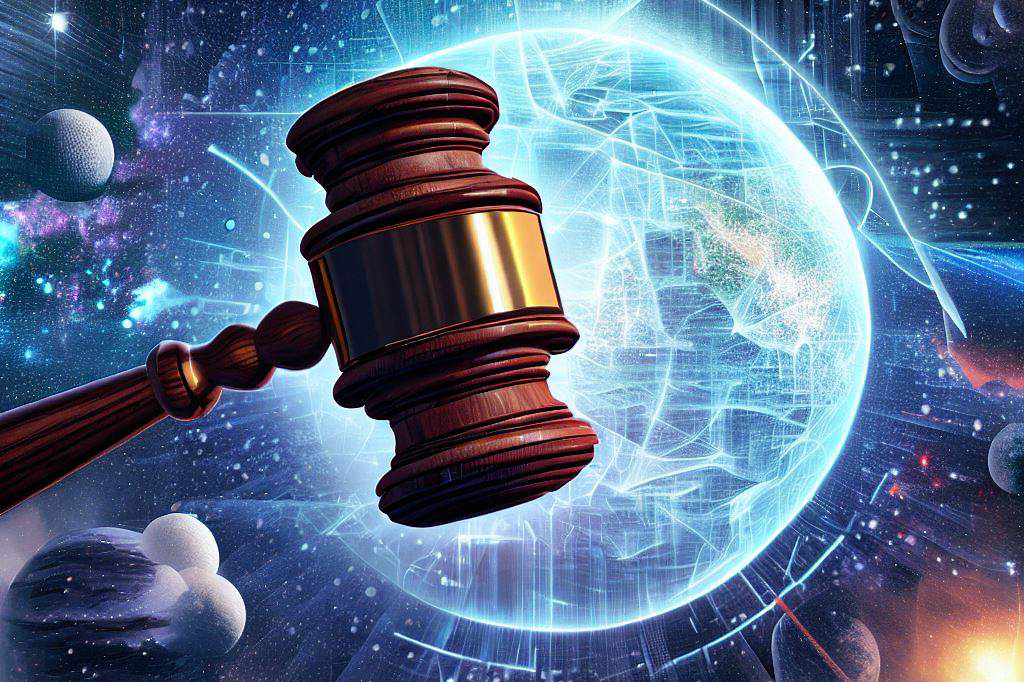Space exploration has come a long way since its inception in 1957 with the launch of Sputnik 1, the first artificial satellite. Today, many countries and private companies are involved in space activities such as launching satellites for communication and navigation, exploring other planets, and potentially mining asteroids for resources. With these new technologies and activities come legal challenges that need to be addressed with updated space laws.
Brief Overview of Current Space Law
The foundation of international space law is the Outer Space Treaty (OST) of 1967 which sets out the principles for the exploration and use of outer space. The OST establishes that outer space is not subject to national appropriation or territorial sovereignty, prohibits the placement of nuclear weapons or any other weapons of mass destruction in orbit or on celestial bodies, and requires states to register their space objects with the United Nations.
Other important international treaties include the
- Rescue Agreement (1968),
- Liability Convention (1972),
- Registration Convention (1976),
- Moon Agreement (1984),
and recently adopted Guidelines for Long-Term Sustainability of Outer Space Activities (PDF) by United Nations Committee on Peaceful Uses of Outer Space in 2019.
In addition to these international laws, individual countries also have their own national laws governing space activities. For example, NASA Authorization Acts signed by US presidents outline policy directives related to NASA programs.
Importance of Updating Space Law to Accommodate New Technologies and Activities
With advancements in technology such as
- reusable rockets,
- satellite constellations for internet access worldwide,
- human settlements on Mars being planned within this century,
- or asteroid mining becoming a possibility;
regulations must keep up with these changes.
Current laws may not be sufficient or very ambiguous when it comes to addressing new issues like liability associated with commercial ventures into outer-space. Moreover, there is an increased involvement of private companies in outer-space activities, raising questions about ownership of resources and how to allocate resources.
The issue of space debris has become more pressing as the number of satellites and other objects in orbit continues to increase. Therefore, it has become essential to update current space law or create new policies that address these challenges while promoting international cooperation and long-term sustainability in outer-space.
New Technologies in Space

Emerging Technologies in Space: From Asteroid Mining to Satellite Constellations
The future of space exploration is not just about sending humans to other planets. The development of new technologies has opened up exciting possibilities for commercial activities in space.
Asteroid mining, for example, involves the extraction of valuable resources from asteroids that pass close to Earth.
This industry could potentially provide a new source of rare metals and minerals for use on Earth as well as help support future deep-space missions. Another emerging technology is space tourism.
Companies such as SpaceX and Blue Origin are competing to offer suborbital flights to paying customers who want to experience weightlessness and enjoy an unparalleled view of the Earth from above. This industry has the potential to become a major player in the global tourism market.
Satellite constellations are yet another technological advancement that promises significant benefits for humanity. These networks of hundreds or even thousands of small satellites can be used for everything from high-speed internet access in remote areas to tracking wildlife populations and monitoring climate change.
Potential Legal Implications of Emerging Technologies
As exciting as these emerging technologies are, they also raise a number of legal questions.
For example:
Who has ownership rights over resources extracted from asteroids?
What happens if a tourist gets injured during a space flight?
Who is responsible if a satellite collision causes damage or injury on Earth?
Existing space law does not provide clear answers to many of these questions. As a result, there is growing concern about potential conflicts between different countries and companies involved in commercial activities in space.
How Space Law Might Evolve To Address Technological Implications
To address these legal challenges, space law will need to evolve rapidly over the coming years.
One possible approach is to develop new international agreements that set out clear rules on issues such as resource ownership, liability and insurance, and the operation of satellite constellations.
Another approach is to encourage greater cooperation between governments, private companies, and other stakeholders in the space sector. By working together, these groups can develop new standards and best practices that help reduce legal conflicts and promote responsible behavior in space.
Whatever approach is taken, it is clear that space law will play an increasingly important role as humanity ventures further into the final frontier. By adapting to new technologies and activities in space, space law can help ensure that the benefits of commercial activities in space are shared fairly among all nations and people.
Space Debris and Environmental Concerns

The Growing Problem of Space Debris
Space debris, also known as space junk, refers to the objects in space that no longer serve any useful purpose. These include spent rocket stages, abandoned satellites, and fragments from collisions or explosions. The amount of space debris has been growing steadily over the past few decades due to an increase in space activities.
This poses a significant threat to spacecraft and astronauts in orbit, as well as to the environment. The potential impact of space debris on the environment is a concern for many scientists and policymakers.
This is because some objects that re-enter Earth’s atmosphere can cause damage or release harmful materials into the atmosphere. For example, when China’s Tiangong-1 spacecraft re-entered Earth’s atmosphere in 2018, it burned up over the Pacific Ocean, but its toxic fuel caused concerns about pollution.
Current Laws and Regulations Related to Space Debris Mitigation
There are currently several international guidelines related to space debris mitigation.
For example, the Inter-Agency Space Debris Coordination Committee (IADC) has published guidelines for debris mitigation practices for various aspects of space activities, such as launch operations and satellite disposal. In addition, some countries have enacted national laws related to addressing space debris mitigation.
For instance, Japan enacted a law in 2008 requiring satellite operators to design their satellites with post-mission disposal capability. However, these laws are not always enforced effectively because it is difficult to track all objects in orbit and monitor compliance with regulations.
Possible Changes to Existing Laws or Creation of New Laws
Given the potential impact of space debris on both spacecraft and the environment, there may be a need for new laws or changes to existing ones. One possible solution could be increasing international cooperation on tracking and removing space debris. Another option would be to impose stricter requirements on satellite operators for disposing of their satellites once they are no longer needed.
This could include setting mandatory end-of-life disposal requirements and penalties for non-compliance. Some experts suggest that space debris should be treated as a global public good that requires collective action.
This could involve creating an international fund to support research and development into technologies for tracking and removing space debris. The goal would be to ensure the safe and sustainable use of outer space for future generations.
Private Sector Involvement in Space Exploration

The New Space Race: Overview of the increasing involvement of private companies in space exploration
In the past, space exploration was primarily a government-led endeavor. However, in recent years, there has been a surge in private sector involvement. Companies such as SpaceX, Blue Origin, and Virgin Galactic have made significant strides in space exploration and technology development.
Private companies have brought innovation to the industry and lowered the cost of entry into space. The increased involvement of private companies has also led to new opportunities for research and development in space.
With private funding comes more flexibility for experimentation and testing of new technologies. Additionally, private companies are not limited by political considerations like governments are, allowing them to pursue more ambitious goals that may not be politically feasible for national agencies.
The Legal Frontier: Legal challenges posed by private sector involvement (e.g., property rights, liability issues)
As with any new industry or activity, there are legal challenges that arise with increased private sector involvement in space exploration. One issue is property rights – who owns resources extracted from asteroids or other celestial bodies?
The Outer Space Treaty prohibits nations from claiming sovereignty over celestial bodies but does not address ownership by non-state entities. Another issue is liability – who is responsible if something goes wrong during a private company’s activities in space?
Currently, international law places responsibility on the launching state for damages caused by their activities in outer space. However, this could become problematic as more private actors become involved.
Adapting Laws to Accommodate Private Sector Involvement
To encourage continued growth and innovation within the industry while ensuring safety and regulatory compliance, it may be necessary to adapt existing laws or create new ones specifically tailored towards accommodating private-sector involvement in space exploration.
One potential solution to the property rights issue could be to establish a system of property rights similar to the one used for oceanic resources.
The United Nations Convention on the Law of the Sea (PDF) allows states to claim an Exclusive Economic Zone extending 200 nautical miles from their shorelines, giving them exclusive rights to exploit resources within that zone. A similar system could be established for celestial bodies.
Regarding liability, one solution could be to require private companies engaged in space activities to have insurance coverage for damages caused by their activities. This would help ensure that those affected by any incidents are compensated while also encouraging greater accountability among private actors.
Overall, as private sector involvement in space exploration continues to grow, there will undoubtedly be legal challenges that arise. However, with careful consideration and collaboration between governments and private entities, these challenges can be addressed through updated laws and regulations that foster innovation while ensuring safety and accountability.
International Cooperation

The Importance of International Cooperation in Regulating Activities in Outer Space
As the use of space becomes more widespread and complex, it is increasingly important for nations to cooperate with each other to regulate activities in outer space. International cooperation ensures that all countries have access to the benefits of space exploration while also minimizing potential conflicts and negative consequences.
Without such cooperation, it would be impossible to establish effective regulations that govern the use of space resources and activities. One example of international cooperation in this area is the United Nations Committee on the Peaceful Uses of Outer Space (COPUOS).
Established in 1959, COPUOS plays a central role in coordinating international efforts relating to outer space activities. The committee works closely with member states to develop policies that promote peaceful cooperation in outer space and ensure that all countries have access to its benefits.
Current International Treaties Governing Outer-Space Activities (e.g., Outer Space Treaty)
The most important international treaty governing activities in outer space is the Outer Space Treaty, which was ratified by 110 countries as of 2021. The treaty establishes fundamental principles for using and exploring outer space, including a prohibition against weapons being placed in orbit or on celestial bodies. It also requires signatories to conduct their activities in a manner that avoids harmful interference with other states’ peaceful uses of outer space.
Other key treaties include the Moon Agreement (which regulates resource exploitation on celestial bodies), the Rescue Agreement (which obligates parties to assist astronauts who are stranded or injured), and the Liability Convention (which assigns responsibility for damages caused by spacecraft). These treaties provide a framework for international cooperation on issues such as property rights, environmental protection, and liability.
Final Thoughts

The evolution of technology has brought about an increasing need for updated laws surrounding activities conducted beyond our planet’s atmosphere. As humans continue to explore the vastness of space, international cooperation is essential to regulating these activities. The United Nations COPUOS plays a significant role in coordinating these efforts.
Various treaties, such as the Outer Space Treaty, Moon Agreement, Rescue Agreement, and Liability Convention, provide the structure and framework for regulating space activities. The evolution of space law will continue to adapt and grow alongside technological advancements.
While there are legal challenges facing private sector involvement in space exploration and growing environmental concerns regarding space debris, it is important to remain optimistic about future developments. By working together through international cooperation and using existing treaties as a foundation, we can ensure that outer space remains a peaceful domain for exploration and innovation.

C M, a seasoned editor, journalist, and consultant, is deeply fascinated by the convergence of technology, space, and the future of humanity.
With a particular interest in transhumanity, futurology, and the philosophical and ethical dimensions of these domains, C M serves as the lead contributor to SpaceSpotlight and TranscendSphere.
When not penning insightful articles on these rapidly evolving fields, C M indulges in their love for podcasts and books, proudly embracing their status as a ‘Happy Nerd Extraordinaire!’



